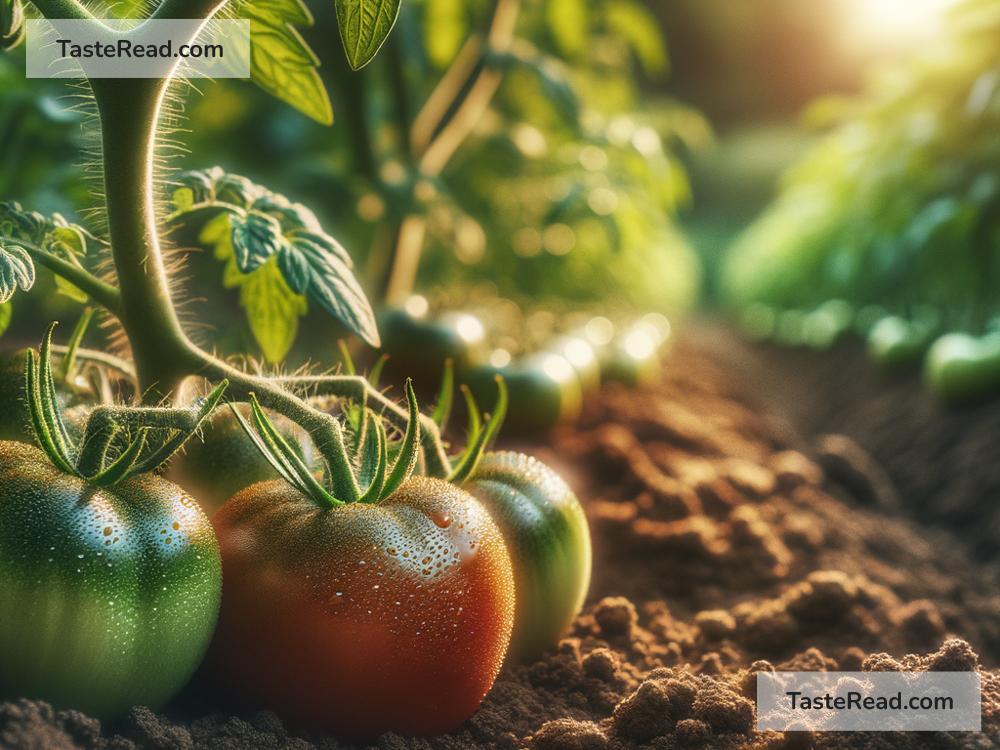How Specific Soil Minerals Influence the Flavor of Fruits and Vegetables
Have you ever noticed how fruits and vegetables from one region can taste completely different from those grown elsewhere? For instance, strawberries grown in California might taste sweeter than those grown in another place, or tomatoes from Italy might have a richer, tangier flavor than tomatoes grown in your backyard. Soil minerals play a big role in this difference. Believe it or not, the flavor of fruits and vegetables isn’t just determined by the plant itself—it’s also influenced by what’s in the soil.
In this article, we’re going to explore how specific soil minerals can impact the flavors of fruits and vegetables. No need to worry about technical jargon—we’ll keep things simple and fun!
Why Soil Is So Important
Let’s start with the basics. Soil is the foundation of any plant’s growth—it’s where roots anchor, where water is absorbed, and most importantly, where plants get their nutrients. These nutrients come from minerals in the soil. Just like humans need vitamins and minerals to stay healthy, plants need specific nutrients like nitrogen, potassium, calcium, and magnesium to grow and thrive.
But here’s the fun part: these nutrients don’t just help plants grow—they can also impact how fruits and vegetables taste. Think of soil minerals as secret seasoning for your produce!
The Role of Specific Minerals in Flavor
1. Potassium: The Sweet Maker
You’ve probably heard of potassium—it’s a nutrient found in bananas, but it’s also super important for plants. Potassium helps fruits and vegetables develop their sugars, which makes them taste sweeter. Sweetness is especially important for fruits like apples, peaches, and melons. When soil has plenty of potassium, it can lead to fruit with a more balanced sugary taste.
Why does this happen? Potassium helps the plant transport sugars from the leaves to the fruit. Without enough potassium, fruits may end up bland or less flavorful.
2. Calcium: The Texture and Shelf-Life Helper
While calcium doesn’t directly impact flavor, it’s essential for creating fruits and vegetables with crisp textures and smooth skins. Calcium helps strengthen the plant’s cellular walls, leading to firmer fruits like apples, pears, and tomatoes. Firm fruits are often juicier and more flavorful because they contain more water.
Poor calcium levels can lead to issues like soft, mushy fruits or vegetables, which aren’t as much fun to eat. Think about the difference between a crisp, juicy apple and a mealy one—calcium content can make all the difference.
3. Magnesium: The Sweet and Green Boost
Magnesium might not sound exciting, but plants couldn’t live without it! This mineral plays an essential role in photosynthesis—the process where plants convert sunlight into food. When plants are healthy and photosynthesis works smoothly, their fruits and vegetables taste better.
Magnesium also indirectly boosts sweetness because it helps plants store sugars. Leafy greens like spinach and kale grown in magnesium-rich soil may taste less bitter, and fruits like oranges and berries can develop brighter flavors.
4. Iron: The Flavor Enhancer
Iron is an essential nutrient for plants—it helps produce chlorophyll, which keeps leaves green and supports overall health. Soil rich in iron can influence the richness and depth of flavor in fruits and vegetables like grapes, cherries, and peppers.
For crops like grapes used in winemaking, iron-rich soils can lead to flavorful wines with unique and complex taste profiles. This is why some wines taste better when they’re made with grapes grown in specific regions—soil minerals make all the difference.
5. Sulfur: The Kick of Spice
Ever wonder why onions, garlic, and radishes have that sharp, spicy taste? You can thank sulfur! This mineral influences the production of compounds in some plants that create strong, pungent flavors. Essentially, sulfur works behind the scenes to give root vegetables their signature tang.
Sulfur-rich soils are particularly good if you want bold, flavorful produce. However, too much sulfur can sometimes create over-the-top flavors, so balance is key.
How Soil Impacts Taste in Different Regions
The mineral content in soil varies depending on where you are in the world. For example, volcanic soils, like those in Hawaii, are rich in minerals like potassium and iron, which can lead to sweeter fruits like pineapples and vibrant, flavorful vegetables. On the other hand, sandy soils in arid regions may lack certain minerals, making produce grown there taste less developed.
Farmers in different regions often adjust their soil by adding fertilizers rich in specific nutrients to improve their crop’s flavor. For instance, they might add potassium for sweeter fruits or sulfur for spicier vegetables.
Can You Influence How Your Produce Tastes?
If you garden at home, you can tweak your soil to improve the flavor of your plants. Simple steps like testing your soil and adding fertilizers rich in specific nutrients can help. For example, adding wood ash to your soil can increase potassium and make your fruits sweeter. Composting is another great way to add a mix of nutrients like magnesium and sulfur.
Final Thoughts: Soil Is the Secret Ingredient
Soil isn’t just dirt—it’s the secret ingredient behind the flavors we love in fruits and vegetables. Whether it’s potassium making fruit sweeter, sulfur adding spice, or magnesium helping greens taste less bitter, soil minerals have a huge impact on flavor.
Next time you bite into a juicy peach or tangy tomato, remember that it’s not just the plant that made it taste delicious—it’s the minerals in the soil, too. Mother Nature has her own recipe for flavor, and soil is the main ingredient.


